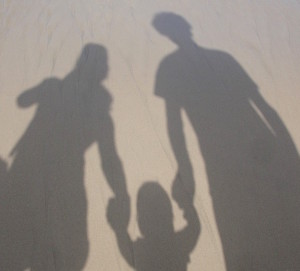Why read a post about mental illness?
- Demographics. Nearly a quarter of the U.S. population will meet criteria for some mental illness this year. Mental illness touches everyone’s life.
- Friendships. Maybe you want to support friends who are suffering. Or you know that increased understanding means a decreased chance of hurting someone you care about.
- Personal Impact. You want to reduce your own chances of experiencing mental illness or cope better with the situation you are in.
- Charity. Perhaps you are someone who wants to “Speak the truth in love.” The more you know, the better you can reach and relate to someone who struggles with mental health.
Whatever your reason, here are five points that might shift your views on mental illness:
1. Mental illnesses are part of the spectrum of common human experience.
I can’t speak for you, but I know I experience anxiety quite often. I remember anxiety over speaking in high school or asking someone on a first date. Now I feel anxiety when others evaluate my work, or when I have to confront someone I care about. I am sure you have worried about some aspect of your life: “Will we have enough to retire?” “Will the principal judge me if my daughter wears mismatched socks and shoes to school?” “Is there something wrong with me if I see the dress as white and gold?” Anxiety and worry are human experiences, but for some they are debilitatingly intense or pervasive. Read More →
 We are all broken. We think of this as our biggest liability, but the reality is that the beauty in our brokenness is overwhelming.
We are all broken. We think of this as our biggest liability, but the reality is that the beauty in our brokenness is overwhelming. It’s no secret that children growing up in our society face a multitude of challenges. They face the ubiquitous presence of alcohol and drugs, media saturated with sexuality, and a culture that struggles to plausibly stand behind basic values. Not to mention a high likelihood that they will not make it to adulthood with both parents in the same stable marriage. As parents, we want to find ways of shepherding our children through these dangers, and we often go to great lengths to provide worthwhile, productive and affirming experiences.
It’s no secret that children growing up in our society face a multitude of challenges. They face the ubiquitous presence of alcohol and drugs, media saturated with sexuality, and a culture that struggles to plausibly stand behind basic values. Not to mention a high likelihood that they will not make it to adulthood with both parents in the same stable marriage. As parents, we want to find ways of shepherding our children through these dangers, and we often go to great lengths to provide worthwhile, productive and affirming experiences. You know someone with a mental disorder. Even if you don’t know it yet. Whether family, co-workers or acquaintances, we’ll call them “your friend.” Since you are reading this, I know you are a caring and compassionate person who would like to understand and support your friend.
You know someone with a mental disorder. Even if you don’t know it yet. Whether family, co-workers or acquaintances, we’ll call them “your friend.” Since you are reading this, I know you are a caring and compassionate person who would like to understand and support your friend. So I am sure you know that there is no conflict between science and revelation. If I asked, you would tell me that when science discovers truth, it cannot conflict with religious revelation because the truths of science and the Church have their source in the same Author. But nevertheless, sometimes it is alleged that “science” disproves/replaces/invalidates religion.
So I am sure you know that there is no conflict between science and revelation. If I asked, you would tell me that when science discovers truth, it cannot conflict with religious revelation because the truths of science and the Church have their source in the same Author. But nevertheless, sometimes it is alleged that “science” disproves/replaces/invalidates religion.